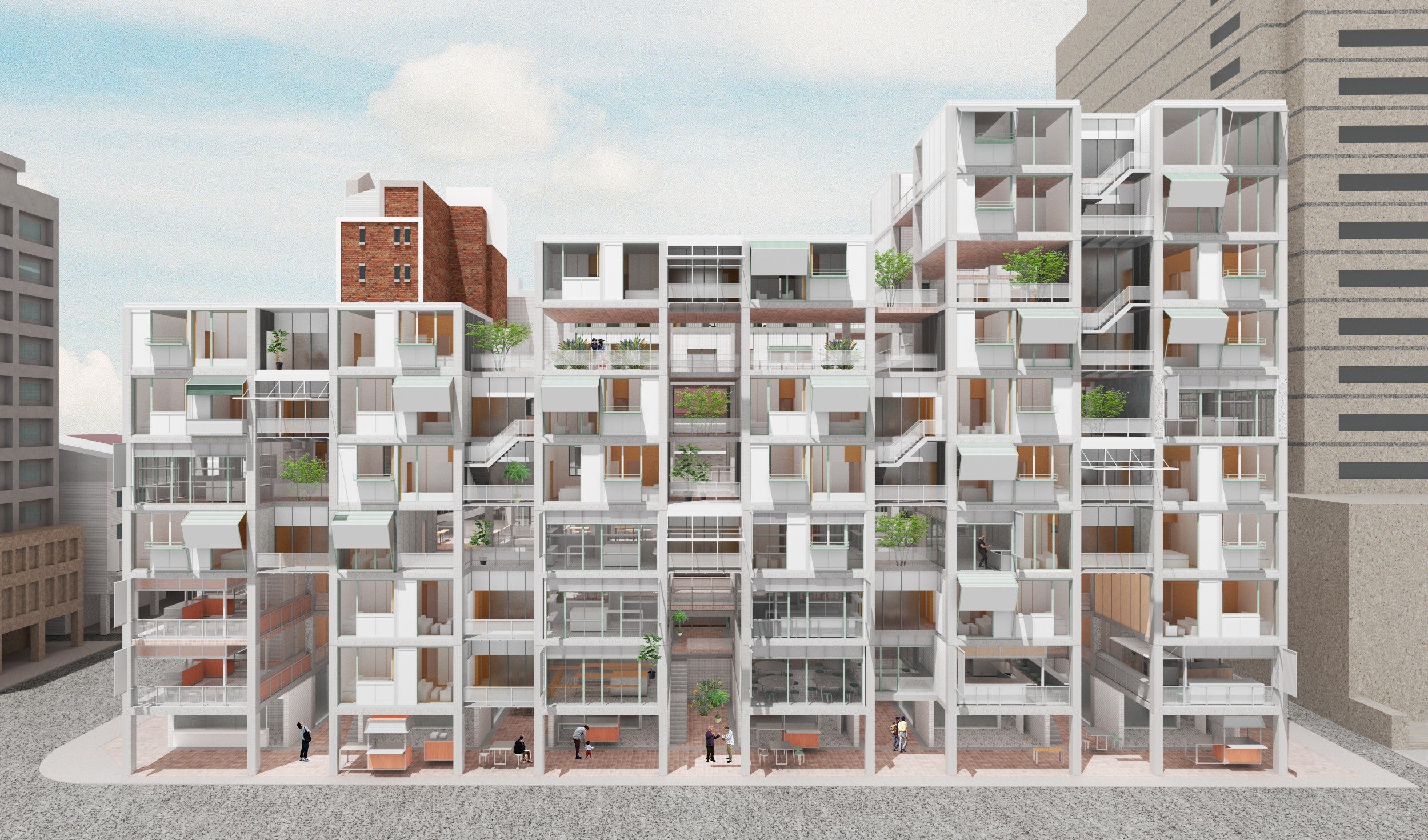Rethinking Typology in Taipei: Designing New Frameworks for Urban Living

Abstract:
The
Taipei
streethouse
is
a
typology
that
has
been
formed
through
a
continuous
dialogue
with
the
local
urban
fabric
and
society.
Since
the
typology
was
first
brought
over
by
Qing
dynasty
settlers
from
Fujian
Province
in
the
late
1600s,
it
has
served
as
the
archetype
for
family
living
and
social
organization.
For
three
successive
waves
of
colonization,
the
city
of
Taipei
has
been
continually
reshaped
and
revised
in
a
fluid
and
incremental
manner,
with
each
colonial
authority
imposing
their
visions
of
the
future
on
the
island
by
reauthoring
the
urban
landscape.
Through
this
dialectic
relationship
with
history,
the
streethouse
type
serves
as
a
symbolic
index
in
time,
revealing
socio-political
changes,
technological
advances
and
shifting
preferences
that
can
be
read
through
its
architectural
elements
and
spatial
composition.
Local
residents
transform
formal
structures
through
interacting
with
their
homes:
adding,
subtracting,
self-fashioning
and
re-defining
spatial
boundaries.
Depending
on
the
immediate
needs
of
the
local
residents,
their
homes
can
be
adapted
to
enable
economic
opportunities
or
remodeled
to
satisfy
their
changing
spatial
requirements.
Transformations
that
are
applied
throughout
an
urban
context
form
patterns
that
reveal
how
type
is
localized
in
response
to
its
socio-political
environment.
The
streethouse
type
can
be
seen
here
as
an
instrument
to
understanding
the
development
of
the
city,
and
a
source
of
cultural
understanding
linked
to
the
past.
The
modern
streethouse,
introduced
between
1960-80,
remains
today
as
the
dominant
urban
housing
typology
in
Taipei.
Despite
its
ubiquity
in
Taipei,
these
streethouses
currently
face
obsolescence
due
to
their
poor
physical
conditions
and
lack
of
modern
amenities.
As
a
result,
they
are
often
considered
undesirable
housing
options
and
their
sites
have
become
the
primary
targets
for
government-led
urban
renewal
plans.
Such
redevelopment
projects
have
begun
demolishing
entire
city
blocks,
often
with
no
consideration
of
the
urban
fabric
or
the
communities
that
existed
there
before.
The
new
architectural
developments
are
globalized
‘products’
that
can
be
recognized
as
multi-storey
condominiums
and
gated
communities.
Their
implementation
has
resulted
in
generic
forms
that
are
culturally
detached
from
the
sites
upon
which
they
are
built.
By
directly
engaging
with
Taipei’s
unique
historic
context
and
the
existing
spatial
practices
dependent
on
the
streethouse
type,
this
thesis
proposes
a
design
approach
that
learns
from
the
development
of
the
streethouse
type
and
the
role
of
local
users
in
transforming
it.
Through
an
understanding
of
how
the
streethouse
has
developed
in
a
typological
process
with
its
users,
a
series
of
design
proposals
will
be
generated
to
speculate
new
forms
of
flexible
housing
that
will
that
reinforce
existing
social
and
cultural
dynamics.
The
examining
committee
is
as
follows:
Supervisor:
Lola
Sheppard
Committee
member:
Adrian
Blackwell
Internal-external
reader:
Tara
Bissett
External:
Vivian
Lee
The
defence
examination
will
take
place:
Tuesday,
February
14,
2023,
1:00
p.m.
This
will
be
taking
place
in
person
in
the
Riverside
Gallery.
The
committee
has
been
approved
as
authorized
by
the
Graduate
Studies
Committee.
A
copy
of
the
thesis
is
available
for
perusal
in
ARC
2106A.